In the era of smartphones, mobile app development is peaking across categories. Whether it is a game, a lifestyle app, or a retail application from a big name company, end users have a lot of digital products to choose from to fulfill their different needs. As a result, the market has become highly competitive, and developers often find it hard to choose the right framework for their upcoming mobile product.
To make things easier, we gathered a list of top mobile app development frameworks in 2020 that will help you choose a fitting framework for your mobile project.
Best Mobile App Development Frameworks – 2020
Our list of the best frameworks for mobile app development includes the ones that will come in handy in 2020 and beyond. The tools you’ll get to learn in this post will fall under the following categories:
- Most popular frameworks
- Best frameworks for hybrid app development
- Top framework for games development
Mobile App Development Frameworks Comparison
When one chooses a frameworks, a lot of questions arise. Which of the many available frameworks will ensure the best end result possible? What are the pros and cons of that framework? Does the framework have a community that supports it? The list of questions doesn’t end there. Our article will provide you with answers to these and other questions about the best mobile app development frameworks, so you can make a solid choice.
Most Popular Mobile App Development Frameworks
React Native
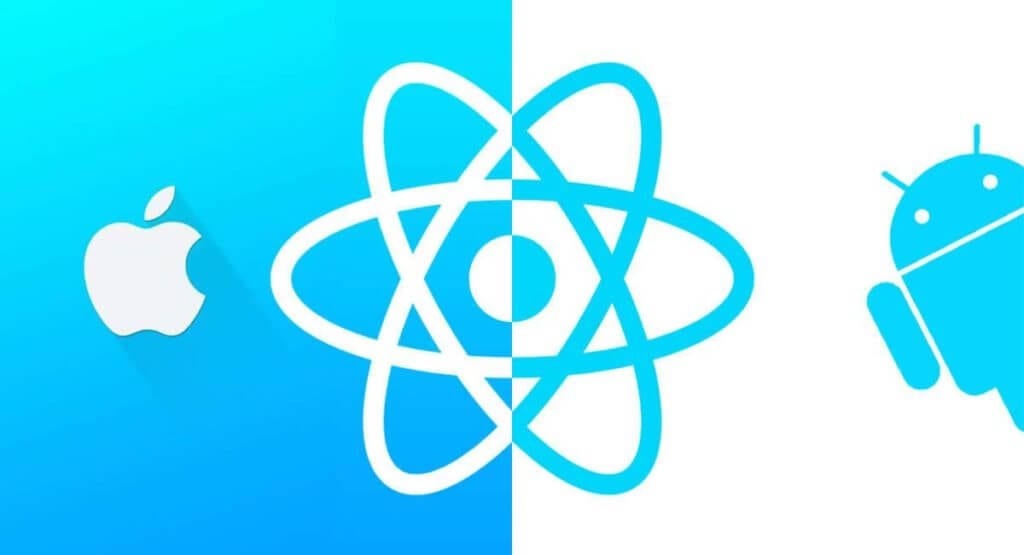
Created by Facebook, React Native is one of the most popular mobile app development frameworks. It is an open-source platform which allows developers to build high-performance apps using native components while also cutting development cycles deployment time. Since its inception, it has often been regarded as the most popular cross-platform mobile app development framework.
Pros:
- Modular architecture
- Optimal performance
- Third-party plugin support
- Reusability
- Code can be shared to different platforms
- Developers can use their JavaScript knowledge to create native apps
Cons:
- Memory management issues due to its JavaScript background
- Steep learning curve
- Performance issues in apps with advanced functionality
Xamarin

A Microsoft-owned tool, Xamarin is one of the best frameworks for cross-platform mobile app development and uses C# code and native libraries wrapped in the .Net layer. Xamarin allows developers to build apps swiftly and saves them time by reusing the tools and code on multiple platforms. Today, more than 1.5 million developers use this platform around the world to build highly-interactive applications. Also having a single code base for creating apps for every OS, it is one of the most preferred frameworks for hybrid mobile app development.
Pros:
- User-friendly UI
- Enables a frictionless mobile app development process
- Comprehensive development environment
- Code can be shared to different platforms
- Cost-effective
- Simplified maintenance
Cons:
- Short learning curve
- Does not suit apps with cutting-edge graphics
- Compatibility issues with third-party tools
Flutter
Launched by Google, Flutter is a stand out amongst the best cross-platform mobile app development frameworks for a number of reasons. It is a software development kit designed for building high-quality native-looking apps for both Android and iOS with Google’s very own programming language, Dart. With the help of Skia (the engine that renders 2D) Flutter aids in developing the visual components for applications.
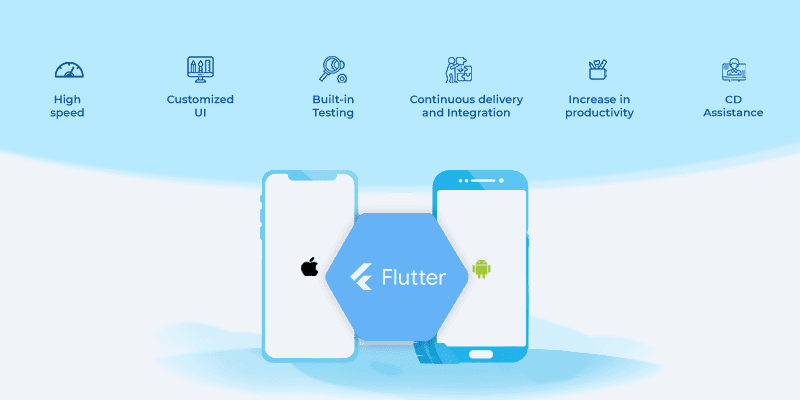
Pros:
- Lightning-fast speed
- Lightweight components
- Supports cross-platform mobile app development
- Needs less testing effort
Cons:
- Requires continuous support
- Limited libraries
Appcelerator Titanium

Appcelerator Titanium is an open-source mobile app development framework that enables developers to create native applications using web technologies like JavaScript, HTML, and CSS. The framework uses JavaScript, which allows for reusability of large amounts of code and building high-performance applications.
Pros:
- Powerful cross-platform mobile app development tool
- Robust and efficient
- Rapid prototyping
- Continuous support from the community
Cons:
- Costs rises if every new complex feature
- Not too flexible
- SDK complications
jQuery Mobile
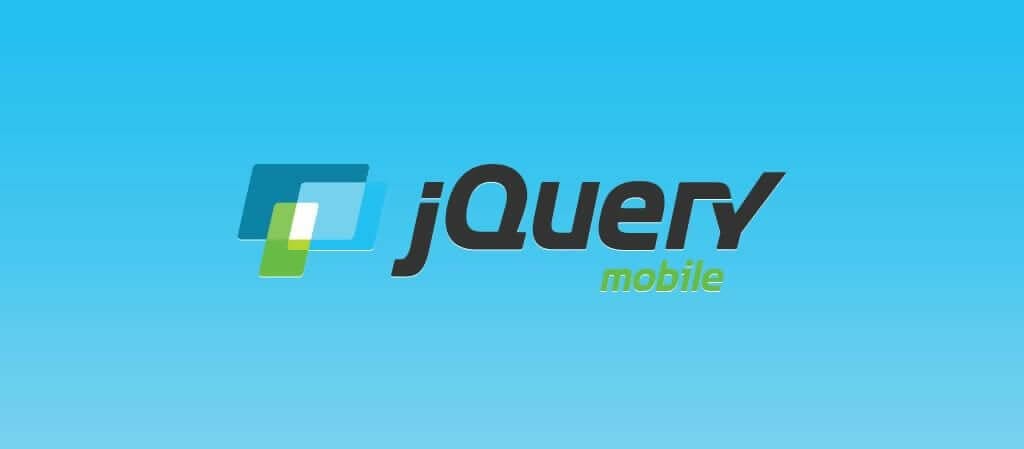
jQuery Mobile is a touch-optimized UI framework built upon the jQuery core. It allows for developing responsive applications accessible on mobile and desktop devices. jQuery Mobile integrates HTML5, CSS3, JavaScript, and AJAX into a single platform to help developers build mobile web apps with fewer lines of code.
Pros:
- Short learning curve
- Simplifies app store approvals
- Good cross-browser and cross-platform compatibility
- Great documentation and tutorials
Cons:
- App do not feel or look like native applications
- Limited capabilities as compared to native applications
Mobile Angular UI
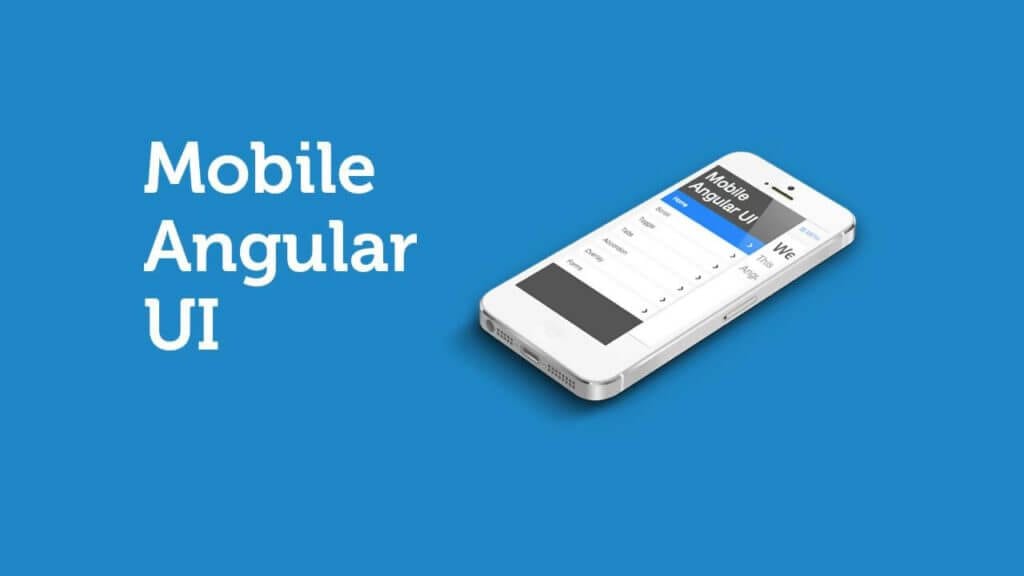
Mobile Angular UI is a structural mobile app development framework that combines the best of Angular and Bootstrap 3 frameworks to allow for building HTML5 applications as well as simplifies the development process. To enable a great mobile experience, the framework relies on rich libraries like fastclick.js and overthrow.js.
Pros:
- Offers mobile components not available in Bootstrap
- Solid server-side support
- Lightweight
- Stable
- Allows for desktop-to-mobile app conversion
Cons:
- Poor documentation
- Difficult to customize
Best Frameworks for Hybrid Mobile App Development
PhoneGap
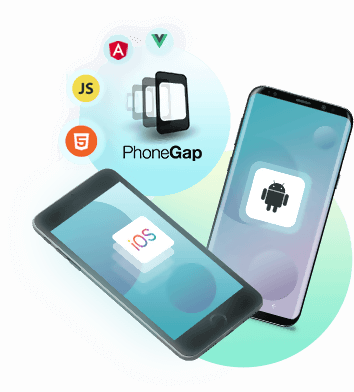
If you plan to develop a hybrid application, Adobe PhoneGap should rank high on your list of best frameworks for mobile app development. PhoneGap enables developers to create robust and feature-rich applications in JavaScript, HTML5, and CSS3. Developers can also integrate various libraries and add more features to their applications.
Multple PhoneGap Build users may want to work simultaneously on the same application. This feature can be found in your app settings, under the Collaboration tab.
Pros:
- Plugin-based architecture
- No hardware-specific limitations
- Multiple build users can work on the same app at once
- Rapid testing and deployment
Cons:
- Limited pre-built UI components
- Not suitable for architectures with complex elements
- Insufficient documentation
- Limited memory management capabilities
NativeScript

NativeScript is an open-source framework regarded as one of the top hybrid mobile app development frameworks. It enables app developers to build and deploy native mobile apps for Android and iOS with a single code base.
Pros:
- Angular 2.0 and TypeScript support
- Native UI components and performance
- JavaScript/XML can be used to build UI
- Growing community
- Faster access to Native libraries
- Excellent performance
Cons:
- Lacks some UI components
- Cross-platform UI abstractions
- The third-party community did not fully develop
Ionic
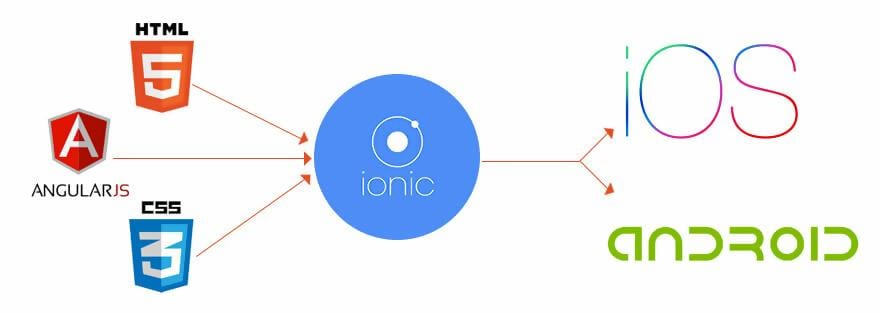
One of the top mobile app development frameworks, Ionic is an open-source SDK which offers tools and services to build hybrid mobile applications utilizing web technologies like HTML5, CSS3, and SaaS. It is based on Angular JS and Apache Cordova, enabling developers to build top-quality hybrid applications and access different features of an OS, including camera, location, battery, etc.
Pros:
- Great design and UI
- Scalability
- Cordova plugins
- Vast UI components base
- Single code base
- A large community of developers
Cons:
- Steep learning curve
- Lacking documentation
- Does not suit apps with cutting-edge graphics
Top Mobile App Development Framework in 2020 — Game Development
Corona SDK

Corona SDK is the best framework for mobile app development when it comes to mobile gaming. It allows developers to build 2D applications and games ten times faster than other tools. It is supported by Lua, a light-weight programming language that offers speed, flexibility, and a seamless environment to develop fast-performance apps.
Pros:
- Free of charge
- Single code base
- Over 500 APIs
- Native UI support
- Excellent documentation
Cons:
- Not easy device testing
- Developers need to learn Lua
Final Thoughts – What Is the Best Framework For Mobile App Development?
Of all the mobile app development frameworks available, these ten tools seems to rule the mobile app development industry in 2020. To choose the right framework for your app project, you should carefully consider its requirements and account for existing and possible challenges. The best-case scenario is a framework that helps you address all the project requirements, has a strong support community, and uses a language you and your developers are familiar with.